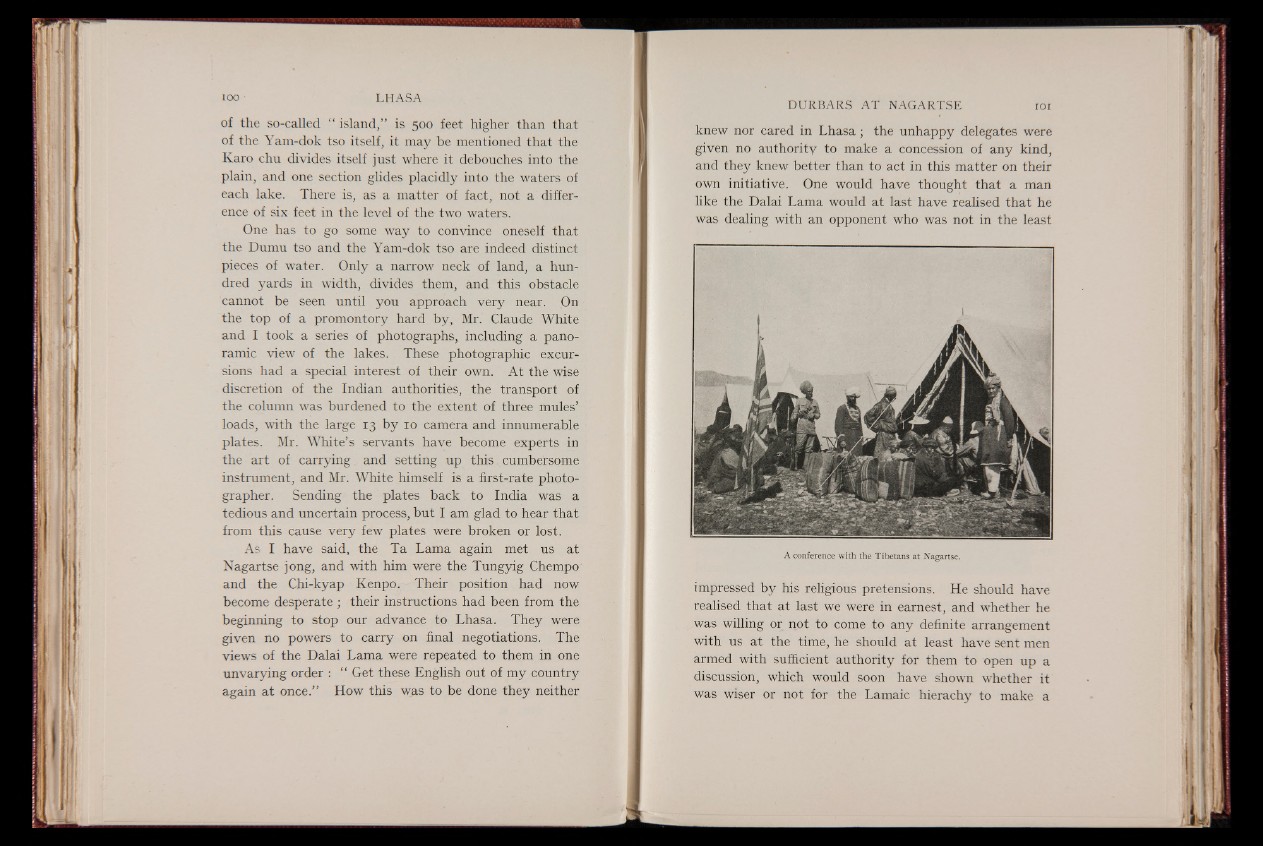
of the so-called “ island,” is 500 feet higher than that
of the Yam-dok tso itself, it may be mentioned that the
Karo chu divides itself just where it debouches into the
plain, and one section glides placidly into the waters of
each lake. There is, as a matter of fact, not a difference
of six feet in the level of the two waters.
One has to go some way to convince oneself that
the Dumu tso and the Yam-dok tso are indeed distinct
pieces of water. Only a narrow neck of land, a hundred
yards in width, divides them, and this obstacle
cannot be seen until you approach very near. On
the top of a promontory hard by, Mr. Claude White
and I took a series of photographs, including a panoramic
view of the lakes. These photographic excursions
had a special interest of their own. At the wise
discretion of the Indian authorities, the transport of
the column was burdened to the extent of three mules’
loads, with the large 13 by 10 camera and innumerable
plates. Mr. White’s servants have become experts in
the art of carrying, and setting up this cumbersome
instrument, and Mr. White himself is a first-rate photographer.
Sending the plates back to India was a
tedious and uncertain process, but I am glad to hear that
from this cause very few plates were broken or lost.
As I have said, the Ta Lama again met us at
Nagartse jong, and with him were the Tungyig Chempo
and the Chi-kyap Kenpo. Their position had now
become desperate ; their instructions had been from the
beginning to stop our advance to Lhasa. They were
given no powers to carry on final negotiations. The
views of the Dalai Lama were repeated to them in one
unvarying order : “ Get these English out of my country
again at once.” How this was to be done they neither
D U R B A R S A T N A G A R T SE 101
knew nor cared in Lhasa ; the unhappy delegates were
given no authority to make a concession of any kind,
and they knew better than to act in this matter on their
own initiative. One would have thought that a man
like the Dalai Lama would at last have realised that he
was dealing with an opponent who was not in the least
A conference with the Tibetans at Nagartse.
impressed by his religious pretensions. He should have
realised that at last we were in earnest, and whether he
was willing or not to come to any definite arrangement
with us at the time, he should at least have sent men
armed with sufficient authority for them to open up a
discussion, which would soon have shown whether it
was wiser or not for the Lamaic hierachy to make a